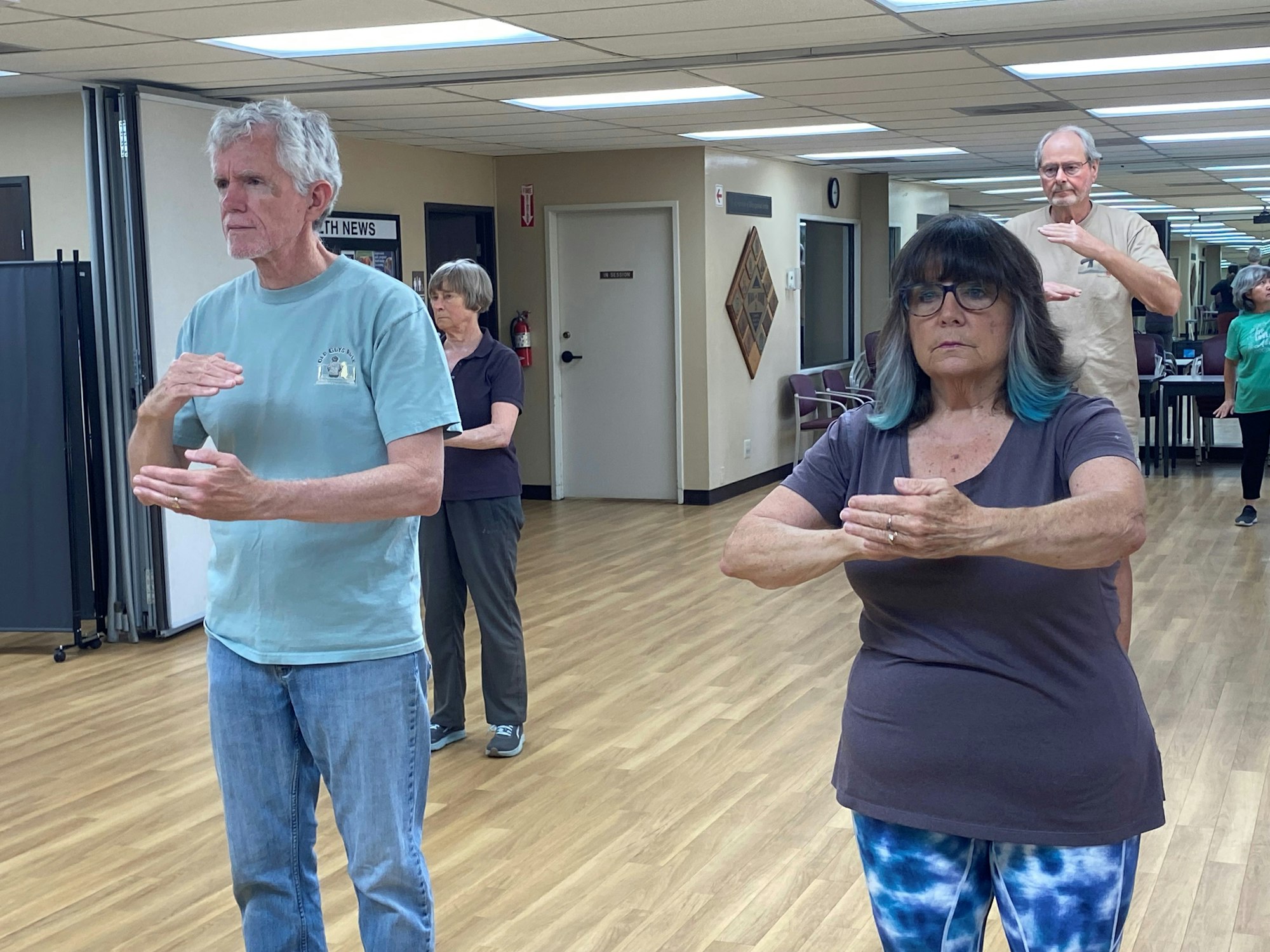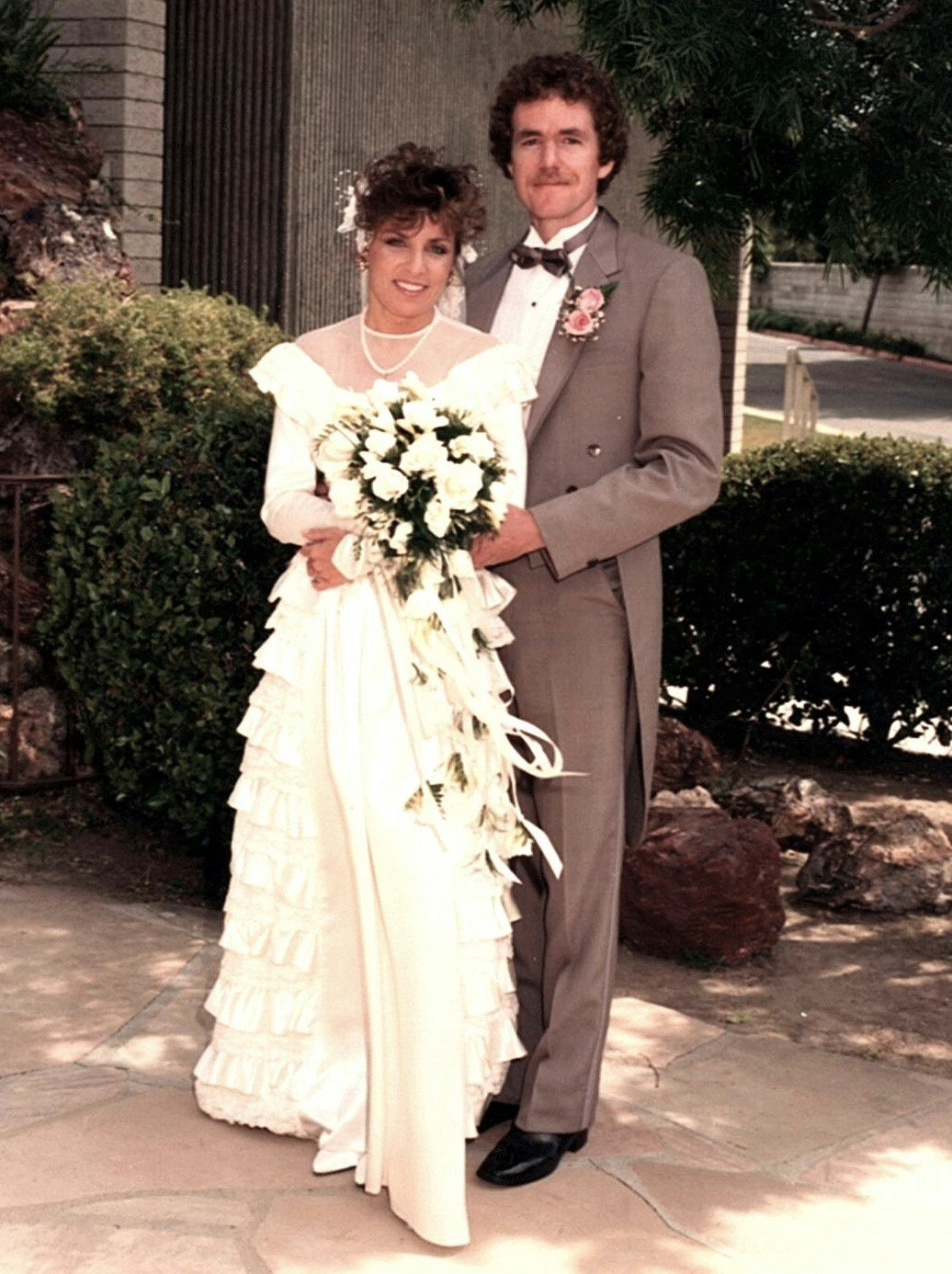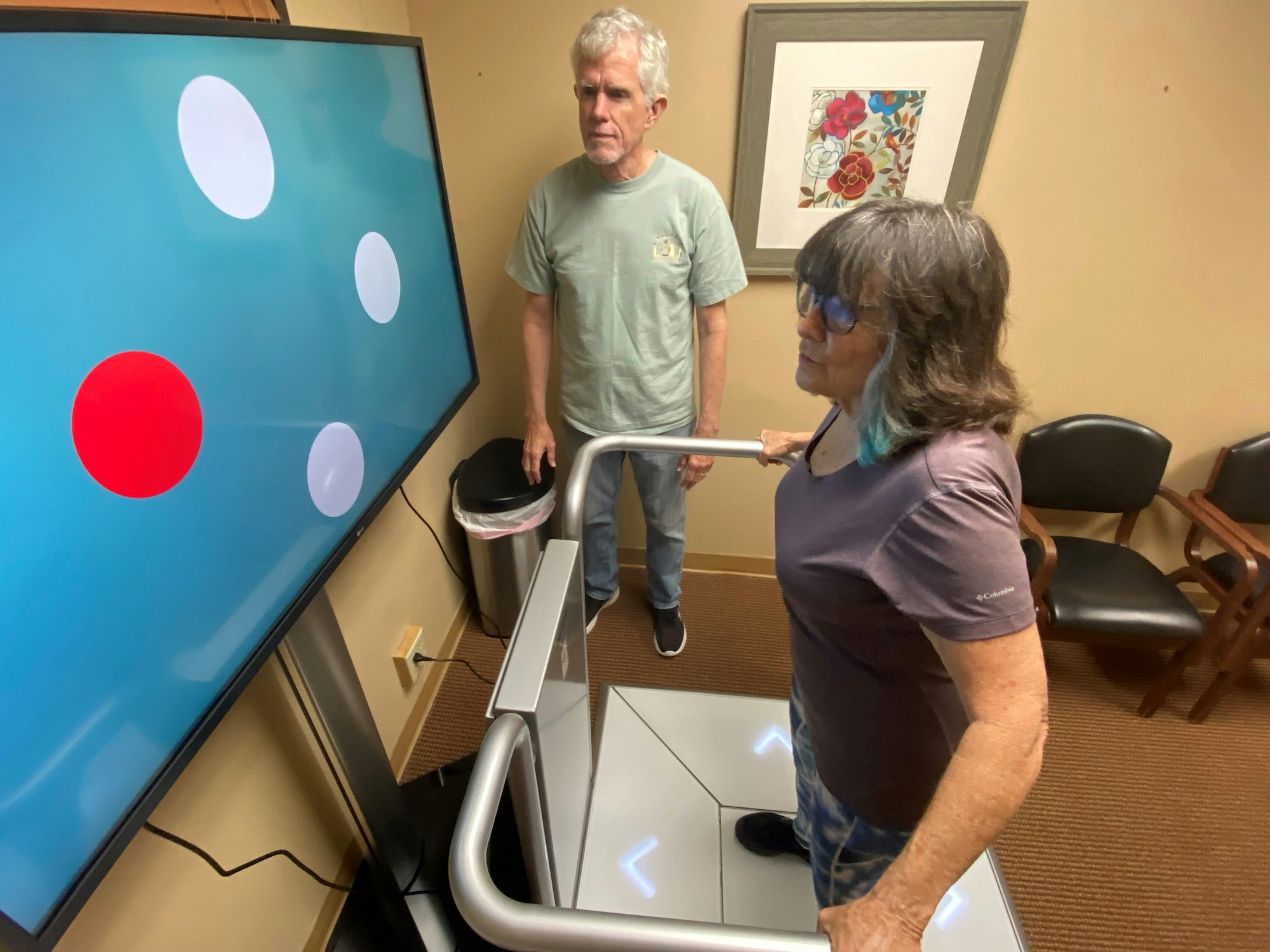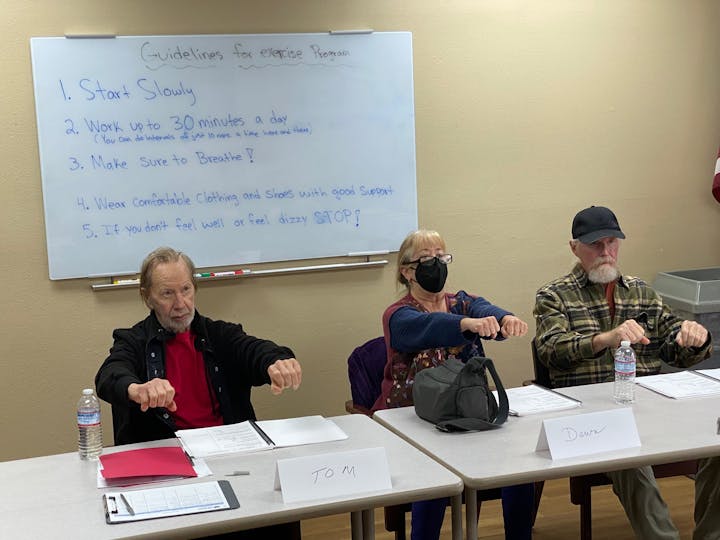Living With Your Diagnosis: The Sullivans

Activities keep couple connected and enjoying life after diagnosis
Bethe and Tim Sullivan married in 1987 and moved to Camarillo from Boston 11 years later. They raised a family, had fulfilling careers, and settled into the next chapter of their lives enjoying a long-deserved retirement. But in January of this year, Tim received a diagnosis that would change their journey, for the rest of their lives.

Doctors told Tim that he had neurodegenerative disease, a type of disease in which cells of the central nervous system stop working; Alzheimer’s disease and Parkinson’s disease are the most common types. While the news was difficult, the Sullivans didn’t allow it to break their spirit.
“We just felt devastated and helpless at the time,” Bethe said . “We took the vow for better or worse, but we didn’t think it would go to worse this early in the scheme of things.”
But there was a glimmer of hope.
“While talking to our doctor, he asked us where we lived, and we told him Camarillo. He said we couldn’t be in a better place because of the Camarillo Health Care District,” Bethe said.
The couple quickly connected with the Camarillo Health Care District (District) and enrolled in the SHARE program. SHARE is an acronym for Support, Health, Activities, Resources and Education, and is based on dementia research by the Benjamin Rose Institute on Aging and funded through a grant from the Arthur N. Rupe Foundation.
SHARE is offered at no cost to District residents and is designed for people experiencing early- to mid-stage dementia, and their caregivers. The process consists of five sessions with a trained health coach, and an optional sixth session if offered for the whole family to be included. Guided by a trained health coach, sessions guide clients in developing a plan for the future while keeping their personal values and preferences in mind for their life as the disease progresses. Bethe and Tim were the first to take advantage of the family session. The couple’s daughter (and her fiancé), son and Tim’s sister, a nurse practitioner in Boston, attended the meeting, facilitated by Mariana Gutierrez, health promotion coordinator with the District.
“Everyone felt at ease,” Bethe said. “Focusing on this ‘worst-case scenario’ helped us feel more prepared for it, if we need it. I can’t imagine walking away from (the SHARE) program without having the family meeting. It was so beneficial.”
During the family session, the coordinator presented the SHARE plan that Bethe and Tim had developed for when they will need help with instrumental activities of daily living (IADLs), such as cooking, cleaning, shopping and doing laundry. It was explained that when his condition worsens and Bethe needs more help, this plan outlines how they would like it to happen.
“We continue to monitor these instrumental activities of daily living because they indicate what Tim can do, and we prefer to focus on what he can rather than what he can’t do,” Bethe says. “These are also areas in which we have seen improvement since we began this journey and took advantage of classes offered at the District.”

Their plan also focuses on how the family can be currently and actively supportive now, and includes positive reinforcement, building a sense of community and using their personal strengths to lift them up. For example, Tim’s brother and daughter will participate in video chats to support Tim’s spirituality and well-being. “It gave them a job and a way to participate, and not just worry,” Bethe said. “The idea is whether this gets better, worse, or stays the same, these are things family members can do to help us and be part of the journey, if they can and choose to.”
SHARE supports open communication and understanding, encouraging families to build a stronger network of support that will help everyone achieve greater peace of mind for themselves and their loved one living with the diagnosis.
Goals of the program include:
- Supporting care partners, helping them communicate effectively and plan for the future
- Promoting health and well-being and decreasing stress
- Encouraging participation in fulfilling activities
- Learning about available resources that reflect care partners’ values and preferences
- Providing education on dementia and how to manage changes that lie ahead
The Sullivans were also encouraged to become familiar with the District’s Caregiver Center, where she can take such classes as “Powerful Tools for Caregivers” and “Dementia LIVE”, browse the Caregiver Library for helpful resources and talk with staff about opportunities such as caregiver respite grants and the importance of taking care of yourself.
And their quest for information, education and support did not stop with the SHARE program. They participated in a number of classes, services and programs at the District, including a nutritionist, financial adviser, Tai Chi classes, fall prevention programming (BALANCEfit). Further, they started taking classes at Rock Steady Boxing!
Tim said he likes the camaraderie and social aspect of the Tai Chi class, and the structure of the class helps him feel successful. The boxing and fall prevention classes are challenging and engage his mind, in addition to getting a workout and enjoying a fun activity with his wife.
“Right now, I just want to spend as much time with Tim as I possibly can, doing things we both enjoy and that will help us improve our health,” Bethe said.
The Sullivans continue to enjoy walking their dogs together and volunteering. “We just really appreciate the small things in life,” Bethe said. “I think in a situation like this, you can either panic and fall apart or you can appreciate what you have. We appreciate what we have and our time together.”





